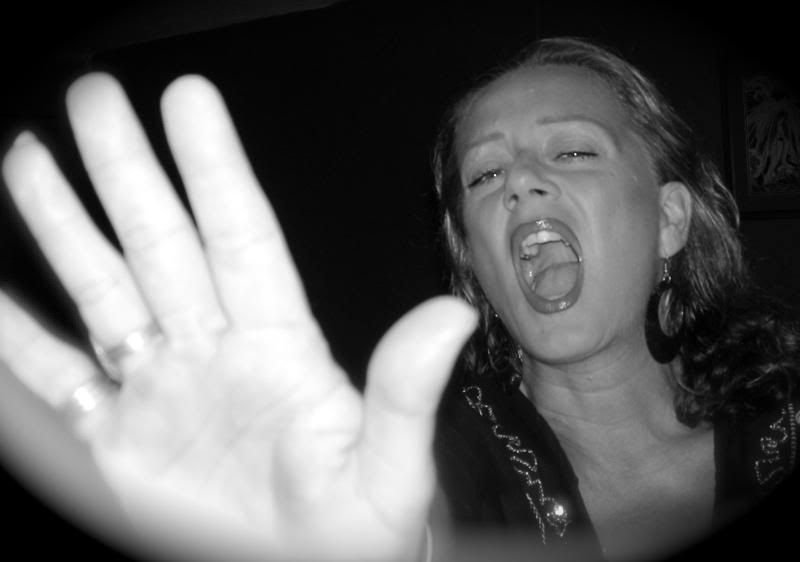By Christopher Ringwald
The Christian Science Monitor
Thursday, August 2, 2007
Once upon a time God, with some federal funding, was going to do so much.
In his early years, President Bush promoted funding for faith-based groups in order to blast social problems with the power of religious belief by unleashing the "armies of compassion." Bush predicted that his faith-based initiative would be his great legacy. And it does send an estimated $2 billion to religious charities.
But the campaign, ignored by Congress and challenged in court, has dropped off the White House talking points. After a brief mention in the 2006 State of the Union address, it was left out entirely this year.
The initiative did leave another legacy: It gave spirituality a bad name in social-service circles. Sad, since spiritual or religious beliefs and practices help millions of people recover from addiction, mental illness and criminality. Unlike other social services that provide a generic good, such as housing, rehab programs often invoke spirituality as the very means of recovery. But after six years of faith-based talk and funding by federal agencies, mental-health and addictions-treatment professionals are wary of spiritual interventions, which they associate with one religious brand: the conservative Christianity of Bush partisans. In reality, the spirituality of treatment and recovery ranges much more widely, from the Twelve Steps of Alcoholics Anonymous (AA) to meditation, group confession, or yoga.
Bush wanted to fund social services whose key ingredient is faith, either in the program itself or as part of the treatment. Congress never signed off. So federal officials reached out to church groups and explained how to apply and win federal funding by keeping their services "faith neutral" or free of proselytizing.
And that's the hitch. If a program promotes one faith to its clients, the government cannot fund it given the First Amendment ban on congressional "establishment of religion." But if such a program sheds its religious character to qualify for public money, how important was that faith in the first place?
There is a solution. Addiction and mental-health programs can assess new clients for their spiritual and religious histories and interests and then tailor treatment accordingly. Courts have ruled that so long as a program offers a client "a genuinely independent choice," religious freedom is preserved. In March, the federal Bureau of Prisons recognized this distinction when it revised a proposal for private operators of "life skills" training programs. Those that offer a religious track would now have to provide a secular one as well.
In the addictions field, clinicians seem less and less interested in accommodating spiritual interests, given their discomfort with the current faith-based climate. They also know that judges in New York, Wisconsin, and other states have ruled that publicly-funded treatment cannot push AA only and must offer alternatives. Good idea, except many counselors now skip spiritual topics entirely to avoid any possible church-state conflict. Never mind that most clients are at ease with the topic and, in surveys, say they wish programs attended more, not less, to their spiritual needs.
Given this inattention, the real constitutional danger is denial of that other First Amendment right, free exercise of religion. For example, when psychiatric patients were in institutions, there were chaplains on staff who could attend to their needs. Now, living in group homes or supervised apartments, many clients have no recourse to religious activity, due to the indifference or uncertainty of administrators and staff. In interviews, ex-patients around the country told me they were never asked about their spirituality during years of treatment.
The answer is to guarantee freedom of, as well as from, religion. According to the Joint Commission on the Accreditation of Healthcare Organizations, "Spiritual assessment should, at a minimum, determine the patient's denomination, beliefs, and what spiritual practices are important to the patient." That's often done when you register for heart surgery at the hospital; it's much less likely if you're checking into a psychiatric unit.
Clinicians can easily incorporate spirituality into treatment. Simple, cost-free measures help, such as a list of volunteer visitors from local congregations. Atheists or spiritual-but-not-religious people can be offered alternative assistance. The key is to help people develop the strengths and methods best suited to their history, situation, and choice. Ignoring spirituality is the most dogmatic approach of all.
Christopher Ringwald is a journalist and a visiting scholar at The Sage Colleges. He is author of "The Soul of Recovery" and "A Day Apart."

No comments:
Post a Comment